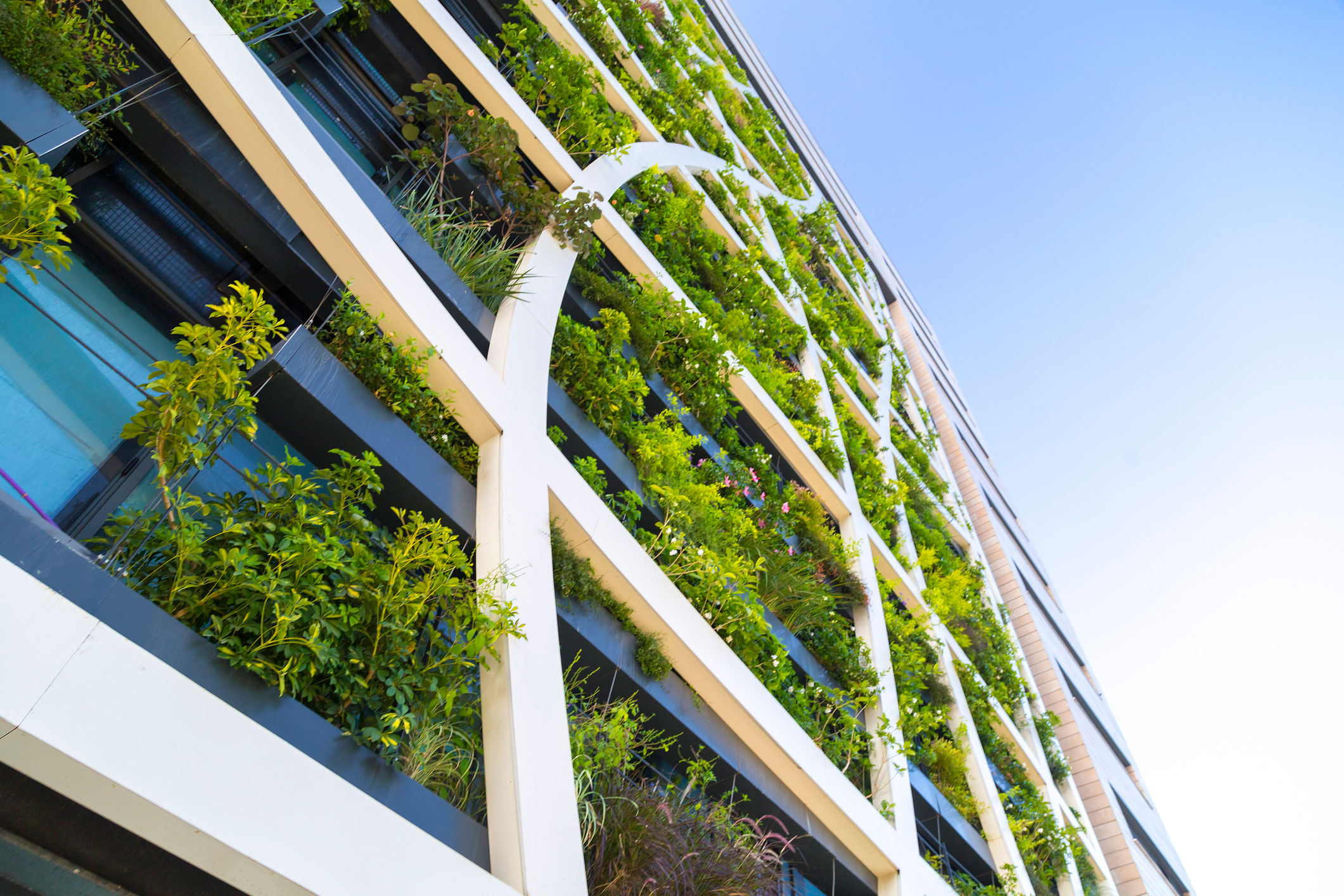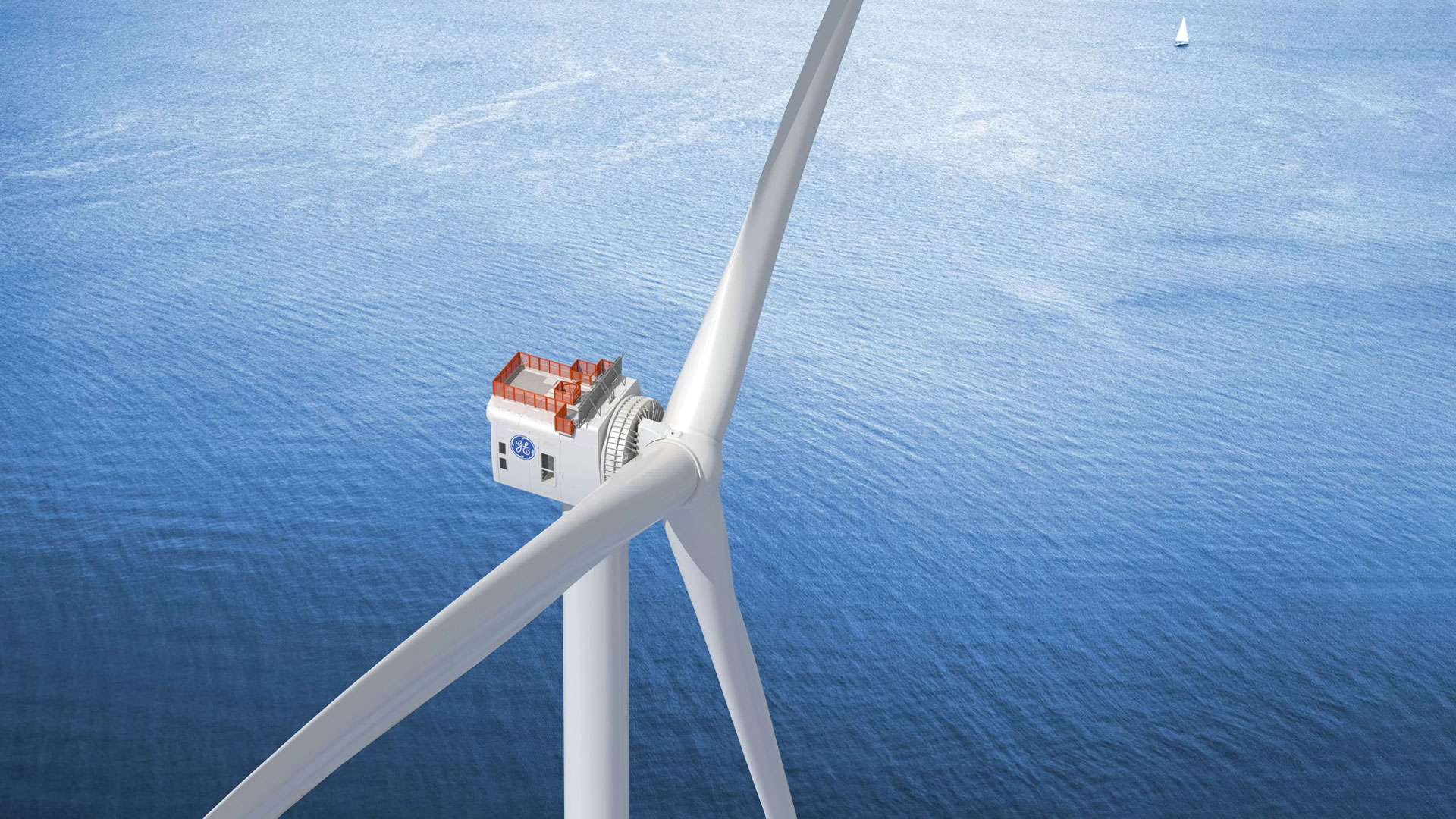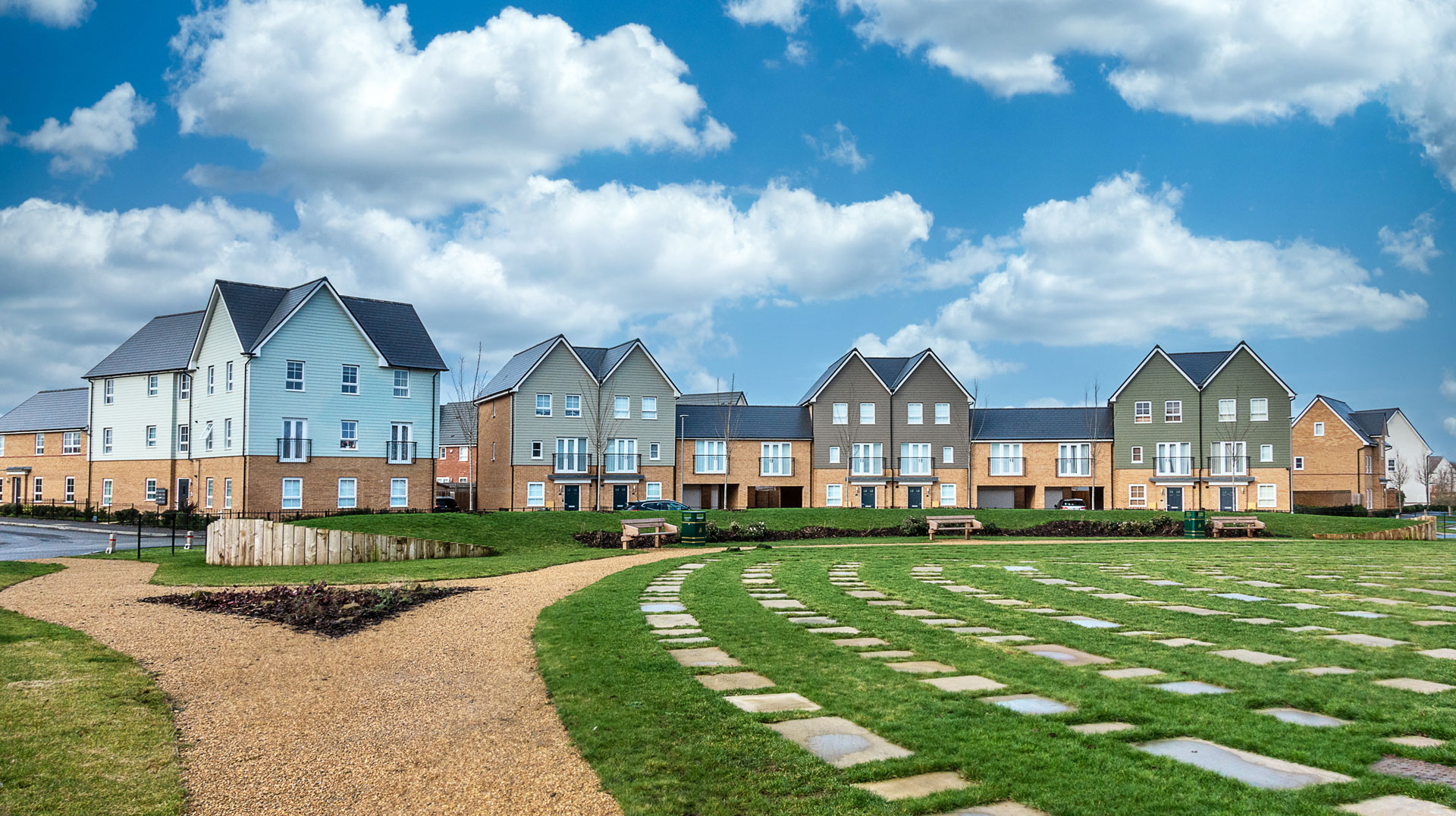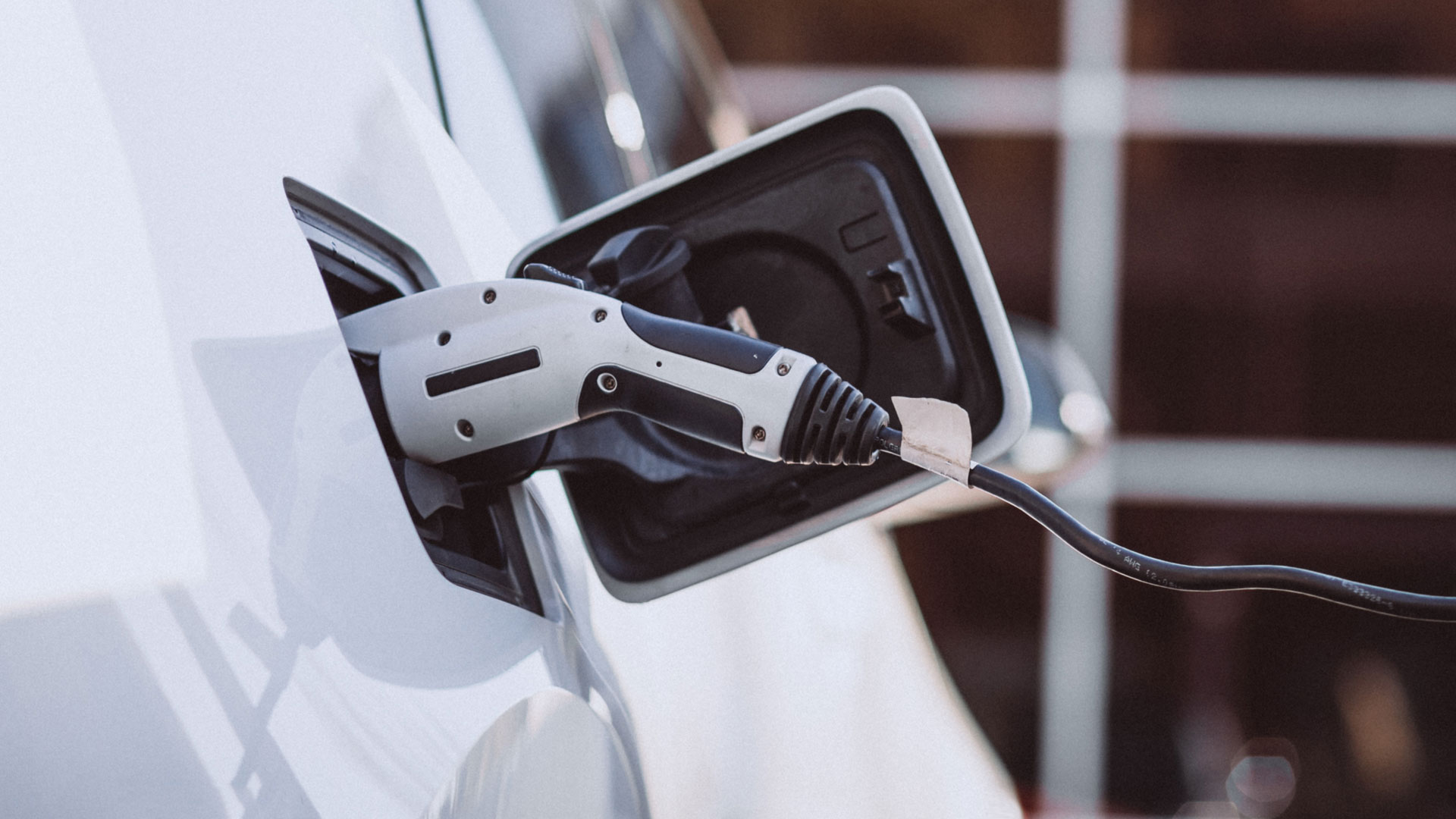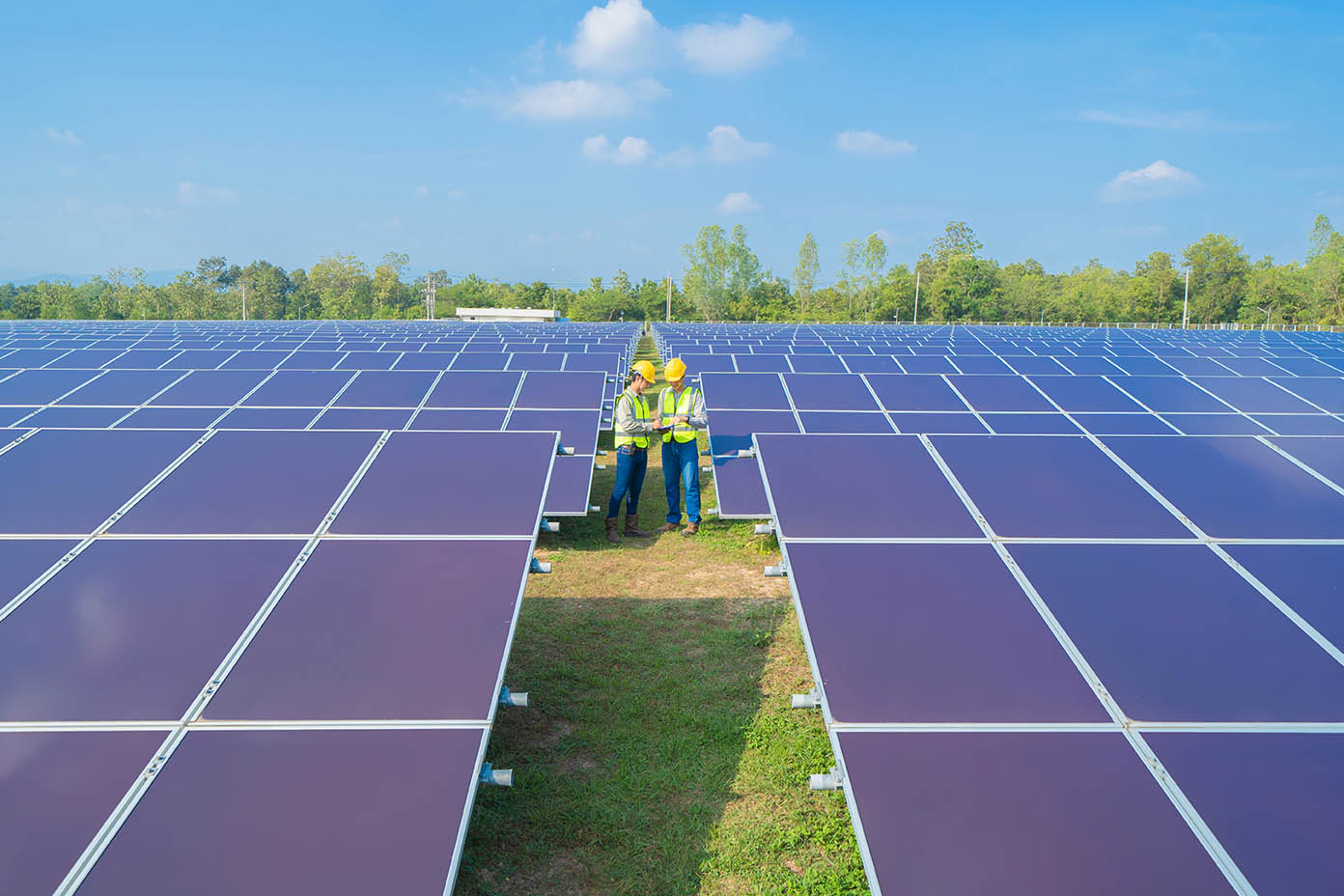
The net gains of net-zero
Decarbonising the economy won’t just benefit the planet, it will be a vital business opportunity as we emerge from the global pandemic.
When last November Boris Johnson announced a 10-point plan to set the country on a green recovery, the UK prime minister drew the curtain back on his vision for what a sustainable future would look like.
The sale of new cars with petrol and diesel engines would be outlawed, Britain’s coastal waters would be dotted with wind turbines generating carbon-free electricity, and money would pour into carbon-capture technologies and storage.
Economists may question the government’s proposed funding levels for such a bold plan, but the message is clear: the journey towards achieving net-zero emissions by 2050 has begun.
This marks a change of gear for UK companies, argues Nick Robins, professor in practice – sustainable finance at the London School of Economics’ Grantham Research Institute on Climate Change and the Environment.
This is a fundamental repositioning of net-zero – it is not just an environmental imperative but a real driver of the economy
“For years, companies and investors have been thinking incrementally, shaving off emissions, with no clear end point,” he says. “Net-zero changes this because there is no longer any hiding place.”
It’s estimated that annual additional low-carbon financing will need to increase five-fold by 2030 to some £50bn. Importantly, this is an investment that will yield significant environmental and economic benefits, not least in terms of reduced energy consumption. As a result, GDP levels in the mid-2030s could be higher as resources are redirected from fossil-fuel imports to domestic UK investment.
“This marks a fundamental repositioning of net-zero so that it is not just an environmental imperative but a real driver of the economy, which is essential as we seek to exit the Covid crisis through a green recovery,” says Robins.
Analysing climate risk
A starting point for any company is understanding its carbon footprint and climate-risk exposure. By 2025, climate-risk assessments will be mandatory for listed companies, large private businesses and swathes of the financial-services sector.
The rules, first developed by global regulators’ Task Force on Climate-related Financial Disclosures (TCFD), will oblige companies to include emissions figures climate-risk analysis in their annual reports.
But Caterina Brandmayr, head of climate policy at Green Alliance, an independent think tank and charity, says businesses should start reporting emissions data and climate-risk analysis sooner rather than later because doing so tends to foster carbon-reduction strategies. “Having that information available makes them more aware of where the risks and opportunities are,” she says.
Widespread reporting is also likely to stimulate sustainability-focused financing, with green funds able to assess risk using companies’ sustainability data; similarly, the banking sector will use emissions data and climate-risk reporting as a metric for developing new products to support economic growth.
Scott Barton, managing director, corporate and institutional coverage, Lloyds Bank Commercial Banking, says: “We recognise that businesses are facing into difficult trade-offs as we recover from the impact of the pandemic. It’s important to be by the side of our clients, and banks have an important role in helping them to build back better by rewarding activity that contributes to the environment.”
At the start of 2020, Lloyds Bank committed to an ambitious goal to accelerate working with customers, government and the market to help reduce the carbon emissions it finances by more than half by 2030.
We are designing things to fit 50 shades of green. Technology is creating a range of bite-sized opportunities
Experts say a second essential step for companies is to embrace sustainability at executive and board levels, appointing people with specific knowledge and experience to elevate the issue beyond their sustainability teams.
Net-zero strategies will force a more profound organisational rethink, argues Nick Mabey, chief executive of E3G, an environmental group. “You can’t just flow this through existing structures because it’s more radical and moving more quickly than previous changes.”
Mabey says it is essential that companies test their forward business plan five, 10 and 15 years out. “Boards need to demand to know the risks and opportunities,” he says. “And they need to carry out their own, independent stress tests.”
Building resilience
Reduction of carbon emissions tends to start with a company’s own footprint, and with obvious steps such as changing fleets to electric vehicles and switching to the use of exclusively green electricity.
Zoisa Walton, chief executive of Octopus Energy for Business, a green-energy supplier, says that technology now enables companies of all sizes to source green electricity easily and quickly online – and even to use variations in pricing to take advantage of fluctuations throughout the day.
“We are designing things to fit 50 shades of green,” she says. “Technology is creating a range of bite-sized opportunities.”
But Lindsay Hooper, executive director at the Cambridge Institute of Sustainability Leadership (CISL), argues that companies also need to focus on ‘Scope 3 emissions’, which are generated along a company’s supply chain and through customer use and disposal of products.
“Covid-19 has highlighted how vulnerable our supply chains are, but they are vulnerable to climate change, too,” she says. “Businesses can build resilience while also reducing their CO2 emissions through collaborating with suppliers, and can unlock wider business benefits through working with their customers and even with their peers and competitors to address common challenges.”
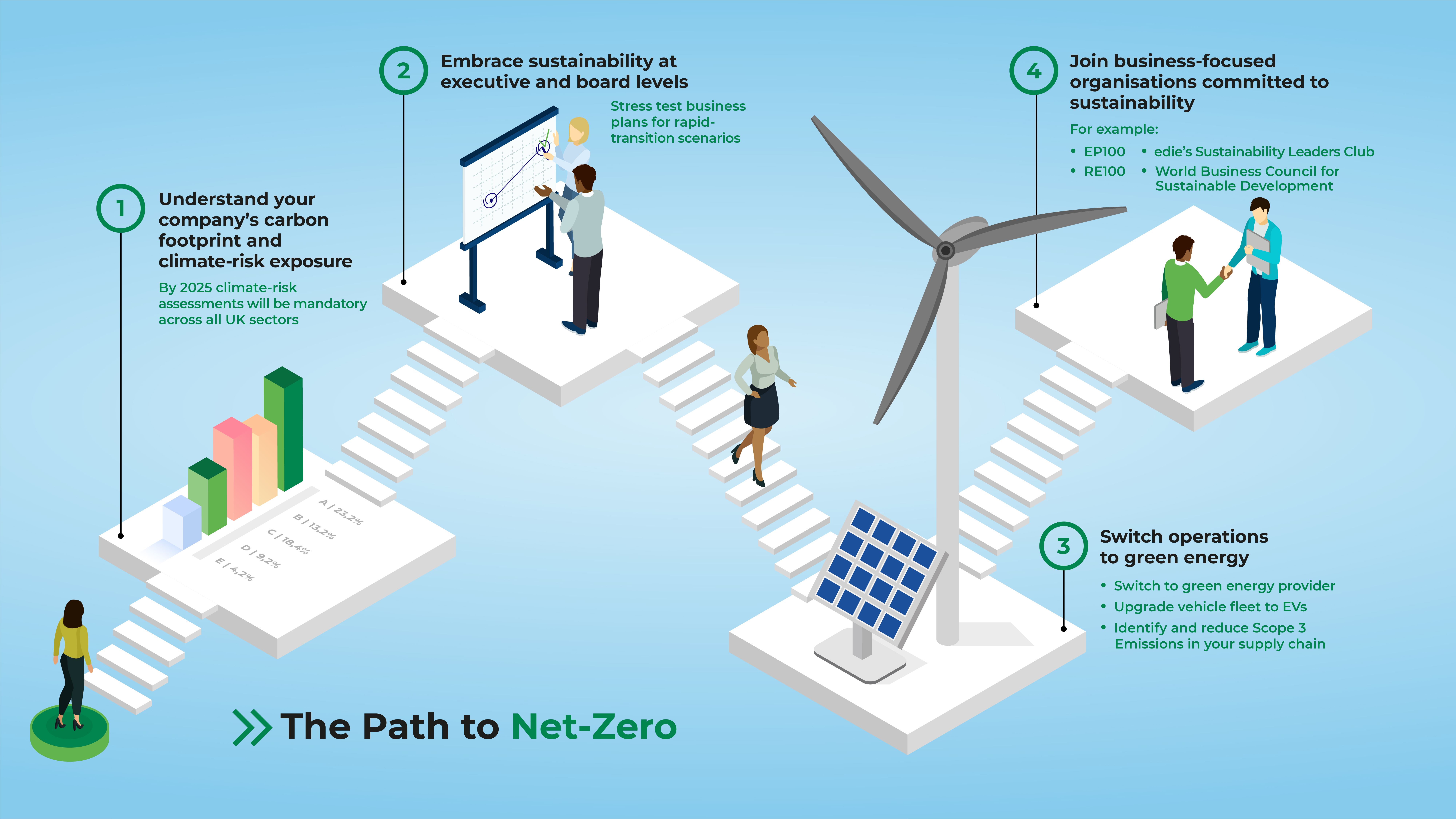
Many companies consider the path to net-zero daunting: a recent poll taken during a Lloyds Bank live event on sustainability and the road towards a lower-carbon economy showed that companies ranked sheer complexity of the issue as one of the biggest barriers to becoming more sustainable. But as Brandmayr of Green Alliance points out, taking steps sooner rather than later is not just good for the planet; it is also about uncovering significant economic opportunities.
“Reducing energy and material waste, and using cheap renewable energy, will cut costs to business while reducing emissions,” she says. “And the transition to net-zero is also about a transformation to entirely new products and services that will benefit consumers as well as the environment.”







